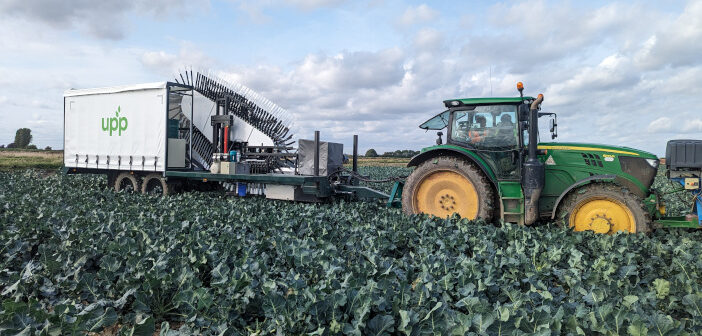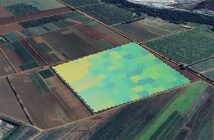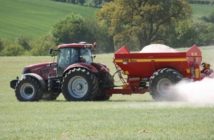A partnership between The UK Agri-Tech Centre, Upcycled Plant Protein (UPP) and The James Hutton Institute is aiming to reduce the CO2 footprint and the environmental harm of protein crop production.
SusProt: Sustainable Plant Protein from Vegetable Crop Sidestreams’, hopes to help solve the problem of sustainable alternatives to animal-derived protein and address issues with farm labour shortages.
The automated broccoli harvester uses computer vision and machine learning to identify broccoli heads that are ready for harvest. Instead of simply harvesting the heads, the system will cut the whole plant, turning unused parts into high-protein into high-protein hypoallergenic ingredients for use in food products, which could include meat alternatives or ‘hybrid’ (reduced meat) products.
Due to labour shortages, broccoli growers often cannot harvest all that they grow. Alongside this, increased labour rates have led to increased farmgate costs which are passed on to the consumer.
The consortium also notes that current alternative protein sources, including plant-based diets, result in issues around biodiversity, deforestation and soil erosion, while also racking up significant food miles.
Mark Evans, CEO at Upcycled Plant Protein, said: “External validation of the nutritional composition and environmental harm reduction is extremely important in giving an early-stage company the credibility needed to work with the UK’s leading food manufacturers, and working with the UK Agri-Tech Centre and the JHI has been important in achieving this.
“In addition, getting the farmers’ perspective of what the technology needs to achieve is extremely important and we have been fortunate to have received some fantastic input from the agricultural community as to how we can help them address their business issues.”
Using a proprietary process, the project has so far delivered pilot-scale production of a palatable protein from 70% of the broccoli plant which is not used, as well as the biomass not harvested. The next step is to source processing near the growing area, to avoid transport costs.
Sue Gordon, project manager at the UK Agri-Tech Centre, said: “UPP has benefited from the fantastic agricultural science base of the UK by working with the JHI and leveraging UK Agri-Tech Centre’s fantastic depth of relationships within the UK ecosystem.
“This has allowed us to move quickly and reduce the capital intensity of developing a complex stack of technologies.”
Why broccoli?
Broccoli is one of the most nutritionally dense foods, scoring 100 of 100 in the Tufts University ‘Food Compass’. Broccoli protein is comparable to pea and soy in terms of the core amino acids and has no identified allergens listed in the major allergen databases. It has high digestibility and contains all the indispensable amino acids.




